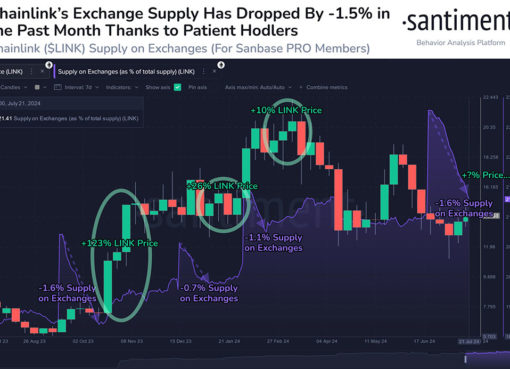According to the report, the numbers prove that Decentralized Finance is the new high-development and growth area for the crypto space. The report also suggested that a dip in Centralized funding projects was seen because of a possible saturation in the sector.
Virtual asset investment companies have invested more than $2.7 Billion into decentralized finance undertakings in 2022. The investments have increased by 190% since 2021, while investments into centralized finance projects have gone down, dropping by a staggering 73% to $4.3 Billion in a similar timeframe. The exponential rise in DeFi funding can be witnessed even though crypto funding numbers have plunged to $18.25 Billion in 2022 from $31.92 Billion in 2021 with the market charts dropping to a full-blown bear run.
According to the report, the numbers prove that Decentralized Finance is the new high-development and growth area for the crypto space. The report also suggested that a dip in Centralized funding projects was seen because of a possible saturation in the sector.
The almost three-fold hike in DeFi investment is also a massive 65-fold increase from 2020, which was when the crypto market bull run initialized. The largest DeFi contribution to the monumental funding reserve gathered was made by Luna Foundation Guard’s (LFG) $1 Billion sale of Luna tokens in February 2022. This was made three months before the unceremonious fall of Terra Luna Classic (LUNC) and TerraClassicUSD (USTC) in May.
Ethereum-native decentralized exchange (DEX) Uniswap raised $165 Million in a Series B funding round that saw companies like Polychain Capital investing in the firm to grow its business into other domains. Another Ethereum staking protocol Lido Finance also raised $94 Million with the leading investor being Andreessen Horowitz.
FTX and FTX US, on the other hand, were the largest recipients of CeFi, having raised $800 Million in January and contributing to 18.6% of the total CeFi funding in 2022 alone. The crypto exchange infamously collapsed ten months later and filed for bankruptcy.
Alternate regions of investments comprise blockchain networks and blockchain technology firms, which collectively raised $2.8 Billion and $2.7 Billion respectively.
According to Henrik Andersson, the Chief Investment Officer of an Australia-based asset fund manager Apollo Crypto, there are four major sectors in the crypto industry. The first one is the amalgamation of NFT and Defi called the NFTfi. The second and third are on-chain derivative platforms and decentralized stablecoins, which have become more popular owing to the fall of FTX and the latest regulatory implementations. The fourth sector according to Andersson is the Ethereum-based layer-2 networks.
Andersson went on to explain that layer-2 tokens like Optimism (OP) have shown great promise until now, specifically when it comes to testnet launch of “Base”, which was designed by Coinbase and is backed by Optimism.
Previously, cryptocurrency analyst Miles Deutscher also estimated that zero-knowledge rollup tokens, liquid staking derivative tokens, and perpetual DEX tokens would function well in 2023 due to heavy backing by funds.
Sanaa is a chemistry major and a Blockchain enthusiast. As a science student, her research skills enable her to understand the intricacies of Financial Markets. She believes that Blockchain technology has the potential to revolutionize every industry in the world.




